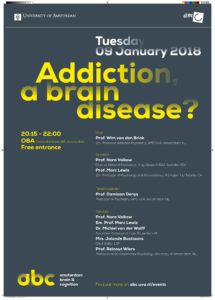Hello readers,
Some of you have noticed that I haven’t posted much in the last few months. The last post published, by Hildur Jónsdóttir, was I thought very beautiful and meaningful. So…not a bad place to end for the season. Please take a look if you haven’t read it yet.
Blogging has been an incredibly enriching experience for me. I have made many friends through the blog, and I feel a strong emotional and intellectual connection with all who have read our posts, responded or not, and remained connected over the years. This is a fabulous blogging community, totally unlike any other in the addiction field, mostly because of the sensitivity, compassion, intelligence, expertise and openness of my readers.
Sound like I’m about to say goodbye? Well, no, not yet.
I have posted less because I’m thinking about other things, trying to write that novel, and mainly because I’m not sure what to focus on in the addiction world that’s new and interesting. Please, please, send me suggestions for topics in the world of addiction — the science, experience, policy, politics, and/or treatment aspects — that either I or colleagues (including readers!) could write about.
My own news. I’ve been in Toronto for nearly two weeks with my family — our annual vacation visit with family and friends. Everyone in my immediate family is well. My boys are now 11 and still delightful. Their experiments with preadolescence remain benign. My girl (from my previous marriage) is almost 30 and getting more interesting and sophisticated by the year. We’re flying (boys, Isabel and I) back to the Netherlands later today. From minus-15 in Toronto to plus-10 in Arnhem. Of course it will be raining when we get there. That’s a given. But I’ll trade that for the cold.
My exciting news to do with addiction: This coming Tuesday evening I will have a public debate with Nora Volkow, head of NIDA and staunch spokesperson for the brain-disease model of addiction. I’ve been wanting to debate Nora for years. I came close a couple of years ago, as I wrote about here. This time it’s a direct hit. The event will be put on by the University of Amsterdam, as part of the hoopla of awarding Nora an honorary PhD. I have a lot of respect for that woman, but we have obvious differences of opinion. I look forward to crossing swords but also finding common ground and directions for connecting brain models with social-developmental “non-disease” models of addiction — and moving toward a framework that may be less contentious and more effective for policy and care efforts all over the world.
I’ll let you know how it goes in my next post. Meanwhile, here’s the poster:

Wish us luck in connecting with each other in a meaningful way. And please do send me suggestions for the blog. A huge number of people are still suffering from addiction or misguided efforts to curtail it. This is no time to stop thinking, exploring, and hoping.

Leave a Reply to Carlton Cancel reply